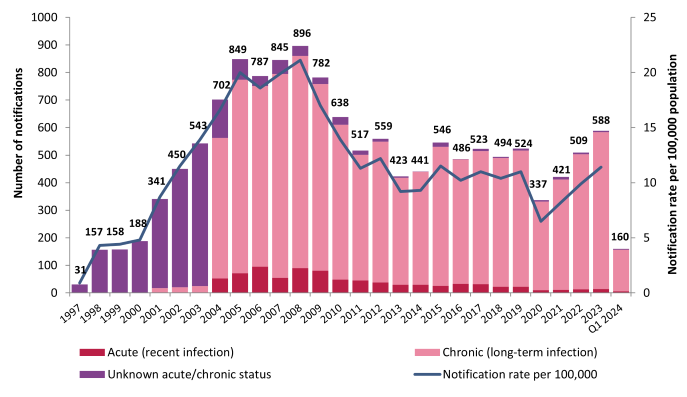Hepatitis B
Hepatitis B is a viral infection, which causes inflammation of the liver. The most common ways people become infected with hepatitis B are; sexual contact with an infected person, transmission from an infected mother to her baby around the time of birth, and sharing needles and other drug equipment by people who inject or use drugs. Over 90% of adults clear the hepatitis B virus within six months of infection. However, most babies who become infected develop chronic (long-term) infection. This can cause them to develop serious liver disease, such as cirrhosis (scarring of the liver) and liver cancer as adults. Liver damage usually occurs gradually over 20-30 years in people with chronic infection. Most hepatitis B cases notified in Ireland are in people who have immigrated to Ireland from countries with a higher prevalence of hepatitis B. Many were infected at birth or in early childhood and developed chronic infection. Hepatitis B became a notifiable disease in Ireland in 1981.
Hepatitis B is preventable by vaccination. The hepatitis B vaccine was added to the primary immunisation schedule in Ireland in October 2008, for children born from 1st July 2008. Vaccination is also recommended for adults who are in “at risk” groups. For more details on vaccination, please see Immunisation Guidelines for Ireland: Chapter 9.
Number of hepatitis B notifications and notification rate per 100,000 population, 1997- Q1 2024

Last updated: 18 June 2024


